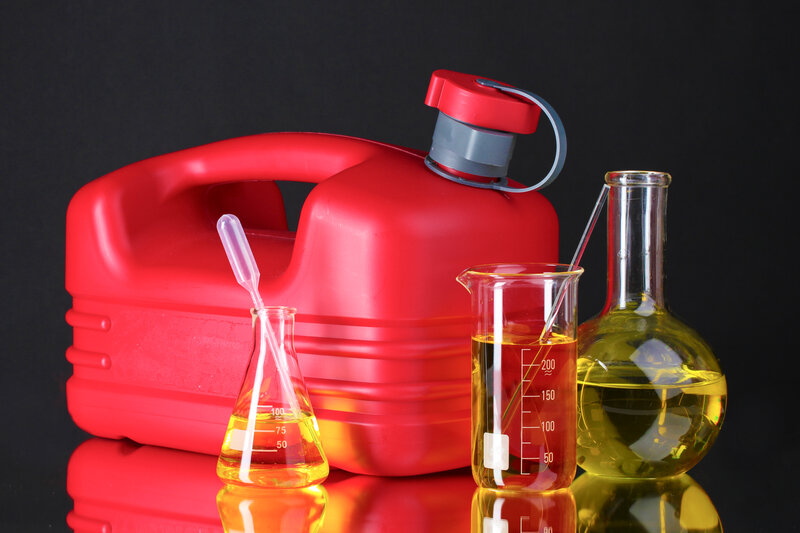
Operating machinery for any home or business requires an in-depth knowledge of how each mechanism works. Many first-time business owners operating trucks, agricultural vehicles, or industrial machinery need help to understand the differences between engine types. Rather than traditional gasoline, many of these crucial machines run on diesel fuel.
A diesel engine is much more sensitive than a regular engine. While using the wrong gasoline grade might not destroy your car, different types of diesel fuel have far more significant impacts than octane rating. Diesel engines that receive the wrong fuel will likely break down or stop running.
As a business owner with heavy machinery, it’s crucial to understand the types of diesel fuel so you can care for your equipment correctly. In emergencies, it’s also essential to have a mobile repair contractor for diesel engines that can resolve the problem.
As there are different gasoline grades, so are there diesel fuel grades. However, these grades’ properties can significantly impact the efficacy and health of your vehicle or machinery.
Experts organize diesel fuel classes based on differences in viscosity and pour point. Viscosity is a liquid’s resistance to flow, while the pour point is the temperature at which a liquid flows. The pour point differs from the melting point, which is the minimum temperature the liquid melts.
Within each of these classes, subgrades specify the level of sulfur output. Higher sulfur content is generally worse for the environment and fuel economy.
Finally, while gasoline rates its quality on octane, paying attention to cetane values in diesel fuel is more important. Cetane values provide insight into the combustion speed and compression necessary for effective ignition and operation. A cetane value between 45 to 55 is typically ideal.
4D diesel fuel is unusable for mobile machinery and vehicles but ideal for stationary equipment in factories or agriculture. This diesel fuel is most useful in low-speed engines where its lower viscosity allows for more gradual combustion. As a result, machines powered by 4D diesel fuel can run for long periods without refueling.
Considered the regular diesel fuel for its widespread use, 2D is what most gas stations provide. This fuel has a high viscosity and pour point that provides superior lubrication for vehicles with mechanisms operating at high speeds and long distances.
The properties of 2D make it better suited for warm weather than 4D or 1D diesel fuel. However, you can mix 2D and 1D to create a more resilient diesel for cold weather.
1D diesel fuel has properties best suited for cold weather. Of these three diesel fuel grades, 1D has the lowest viscosity and pour point.
It’s important to note that using 1D is best with machinery or vehicles running at moderate speeds in cold weather. With lower combustion levels, 95% less energy output than 2D, and lower gas mileage and horsepower, consider 1D a diesel fuel suited only for some environments.
Besides the properties of diesel fuel, there are also different types of diesel fuel that come from various sources. Regarding sustainability and the environmental impact of industrialization, diesel fuel sources and production are the top considerations.
The most common type of diesel fuel is petroleum diesel. This fuel is most likely at your neighborhood gas station.
Producers create petroleum diesel by distilling crude oil at temperatures between 200 to 350 degrees Celsius. These high temperatures yield carbon chains containing 8 to 20 carbon atoms, which provide optimal combustion for vehicles. Buses, trains, trucks, factories, and agricultural machines all favor petroleum diesel.
A recent alternative to petroleum diesel growing significantly in popularity is biodiesel. Biodiesel is a fuel made from cooking oils, vegetable oils, and animal fats. Additionally, biodiesel fuel provides a more environmentally friendly burn with almost no emissions while maintaining operational efficacy.
Vehicles can utilize biodiesel in its pure form or as an additive to regular petroleum diesel. Passenger vehicles using diesel fuel can take biodiesel without major engine renovations. Major car manufacturers are working to create more models of vehicles that accept this fuel.
Synthetic diesel is another more environmentally friendly alternative to traditional petroleum diesel. Free of sulfur and many petroleum byproducts, synthetic diesel is also a much cleaner-burning fuel with almost no carbon emissions.
Creating synthetic diesel involves a series of chemical reactions known as Fischer-Tropsch synthesis. This process yields diesel that provides long-term, low-carbon fuel.
Dimethyl ether is a colorless gas gaining popularity as a non-toxic, clean-burning fuel source. Another alternative to regular diesel, dimethyl ether offers high cetane ratings and the potential to become a lucrative renewable energy source. It’s also cheap to produce and reduces soot and nitrogen oxide emissions.
Hydrogenated oils and fats are yet another renewable diesel fuel growing in popularity. Like biodiesel and synthetic diesel fuel, vegetable oils and animal fats containing an ester chemical undergo processes that produce alkanes. These compounds yield a fuel source with a lower density and energy content, ideal for specific machinery.
Diesel fuels like DMX, DMA, DMB, and DMC are ideal for cargo ships, naval vessels, recreational watercraft, and other marine applications.
When evaluating the best diesel fuel types for your needs, it’s crucial to consider the vehicle and the environment in which it operates. Significant differences exist between the fuels suitable for agricultural versus recreational vehicles or in different temperatures.
Ensure you consider the environment, average temperature, cetane values, fuel viscosity, sulfur content, pour point, cleanliness, sustainability, and vehicle function. Choosing the wrong type of diesel fuel will likely decrease the lifespan and efficacy of your vehicle or machinery.
To learn more about the different types of diesel fuel or causes of fuel dilution, call All Bay Diesel at (925) 522-1780 today!